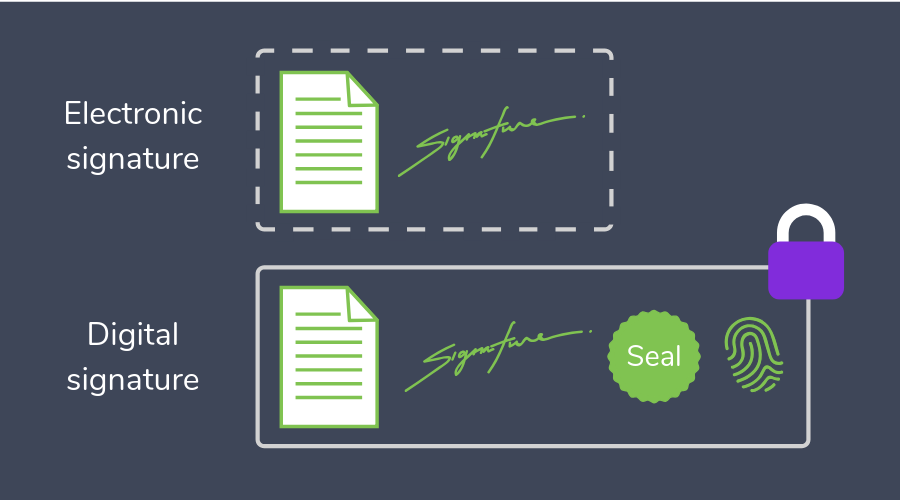IT’S ALL ABOUT
Reliability
Most “electronic signatures,” and all digital signatures, are made using a cryptographic process that uses a PEN (secret Personal Endorsement Number) that is mathematically related to a public number that should be associated with the signer.
Providers of “electronic signature” services keep an inventory of such secret numbers on their servers. Effectively, they rent the signer an identity for the duration of a signing and then use that same secret number later to identify another signer.
For that reason, “electronic signatures” can be easily repudiated. The signer of your document can say “I didn’t sign that” with impunity.
Digital Signatures Are Fundamentally Different From "Electronic Signatures."
In a digital signature process that PEN resides in a secure vault inside the signer’s phone, computer or other device, bound to the signer through an enrollment process. The PEN never leaves their device. The public number is in a digital certificate that is legally bound to the signer, making repudiation of a signature extremely difficult.

IT’S ALL ABOUT
Cost
Because the vendor of “electronic signature” services is involved in every signing, you pay for each signature.
With digital signatures, you own and control the signing PEN. Use it as many times as you want, at no cost because no “signing service” vendor is involved.
IT’S ALL ABOUT
Security

With an “electronic signature” signing service, the service actually does the signing. So the signing service must have the document being signed.
With a digital signature, your document is under your possession and is shared only with people you choose to share it with.
IT’S ALL ABOUT
Ongoing Value
That PEN can be used for a number of other security-oriented services such as password-free logins, signing emails to prevent phishing, control of encryption/decryption keys – it’s a useful tool that will make your life simpler and more secure.

But don’t take our word for it – let a vendor of “electronic signature” services explain the difference:
https://www.airslate.com/product/electronic-signature?fromHeader=1
Is there a difference between a digital signature and an electronic signature?
Yes, there is a substantial difference between these two concepts. As a matter of fact, it’s a common misconception that these types of signatures can be used for the same purposes and in the same industries. You can use an electronic signature as a legally valid equivalent to a paper-and-ink one. On the other hand, the technology behind a digital signature is based on encryption techniques and offers more options in terms of security and protection against forgery. While both types of document signatures are legally binding, a digital signature is suitable for industries dealing with high-stake business operations and transactions.
Contact
Contact Us